Becoming a blogger is an increasingly popular way to start your own business and make money online, and it can be incredibly rewarding. But what exactly does a blogger do?
Truthfully, a typical blogger has a lot of different responsibilities and job roles and these also tend to change a lot over time as the blog grows.
If you’re starting a blog by yourself, you have a lot of hats to wear and skills to juggle.
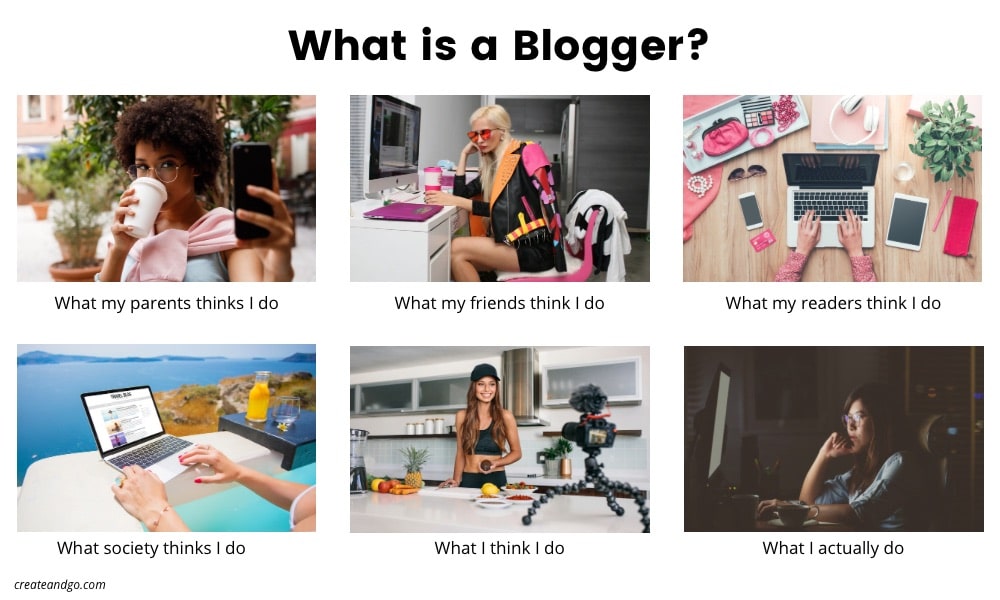
Over time, it’s possible to grow your blog big enough to have a whole team supporting it. But what comes first?
What qualifications and skills does it take to be a successful blogger?
In this article, we’re exploring the different job roles and responsibilities for bloggers and what you can expect in each of the different areas of your blog.
What is a Blog?
A blog is simply a website that focuses on written content, called blog posts or articles.
Many websites have blogs that explain more about their brand, content, products, or services.
When people think of blogs, they think about personal bloggers writing about their hopes and dreams as more of a hobby.
But blogging is a full-time business for many entrepreneurs, including us, and an entire set of skills and job roles are required for that.
We started blogging because we wanted freedom – both financially and from the burden of working in an office every day.
For more specifics: What is a Blog? (How it Works Explained Simply)
5 Main Job Roles of Bloggers
Below are the most important tasks that bloggers are responsible for and what makes up the core of their business.
1. Write Content
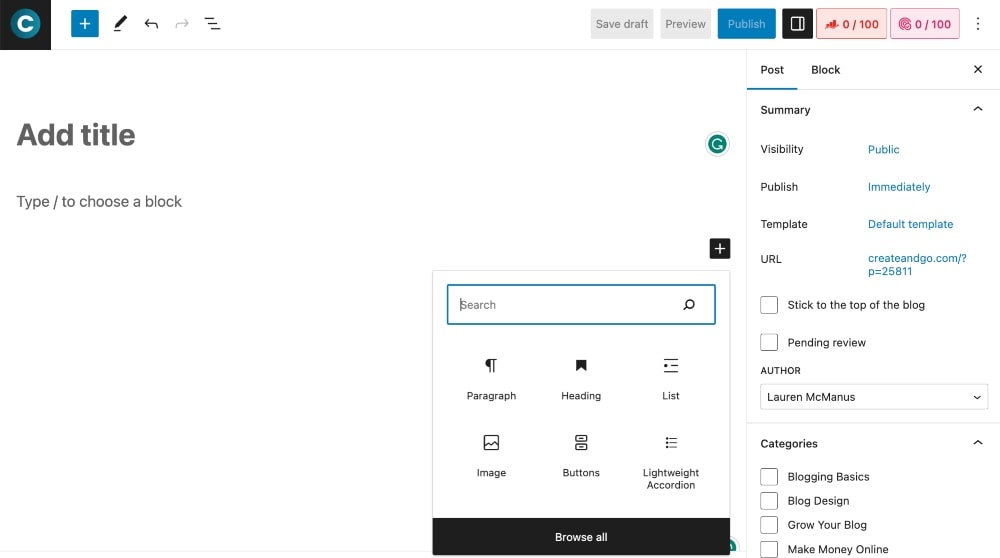
First and foremost, the main job of a blogger is to create content. This can include blog posts, videos, podcasts – whatever you choose to create
Content creation is at the heart of what you do because it’s how you provide value for your audience and start building relationships with them.
When it comes to writing content, this means understanding at least the basics of SEO search engine optimization for blogs and optimizing your blog posts to drive more traffic from search engines.
Preparation for Each New Blog Post:
- Brainstorm topics and ideas
- Keyword research
- Write engaging content
- Add relevant images
- Format your blog post with heading and internal and external links
- Use SEO tools to optimize your content for search engines
Successful bloggers typically write a new blog post anywhere from 1-3 times per week on their blog to stay relevant, but you also don’t have to do this alone.
You can hire a freelance writer to help you write content or simply use AI writing tools to help you write more blog posts, faster!
You also don’t have to write blog posts very often if you want to build your audience in other ways, which is what we’ll talk about next.
At this stage, it’s also important to take some time to think about who your target audience is. Writing a blog business plan can help with this.
Other Blogging Tasks Related to Creating Content
- Creating an editorial calendar
- Regularly updating content
- Evaluating the use of ads on your blog
- Responding to comments on your blog
Related: Blog Writing: How to Write Blog Posts Readers Love
2. Content Promotion and Social Media Marketing
Once you write a blog post, it’s time to share it and start building an audience so that you can get new readers to your content.
Focusing on SEO is one way to increase your reach, but there are a lot of ways to promote your blog.
Social media marketing is one of the best ways to get more eyes on your content, grow your audience, and increase your blog’s reach.

You can use social media to build relationships with people in your niche, give your audience more insights into your personal or professional life, and share your blog posts.
There are a lot of different social media channels and each one requires a different setup and effort to grow.
Popular Social Media Platforms for Bloggers
Here are a few examples:
- Facebook: Good for online communities and running paid ads. Many bloggers don’t use Facebook for much else these days.
- Instagram: Good for connecting with your audience through short stories that show more about your day-to-day life as a blogger (or a human).
- TikTok: Similar to Instagram but also good for sharing quick, funny, and/or entertaining content that makes you more relatable.
- YouTube: Great for taking a deeper dive into your blog content and helping to educate your audience on important topics (and make sales).
- Pinterest: Like Google, Pinterest is partly a search engine, which makes it great for showcasing your brand and driving traffic straight back to blog posts.
- Podcasts: Also great for building relationships and getting more personal and real with your audience because they can hear your voice and listen to you offline.
Depending on which platform you want to use, part of your work will be to create images and videos to promote the content on your blog.
You don’t have to be active on all of these platforms to have a successful blog. It’s generally best to focus on 2-3 that can have the most positive impact on your business.
You will also need to dedicate time to learning these platforms, how to reach your target audience, create engaging content, get subscribers and followers, and make sales.
3. Email Marketing
Email marketing is another great way to promote your content, reach more people, and connect with your audience.
It’s also a great way to build relationships, send out special offers and promotions, as well as make sales.
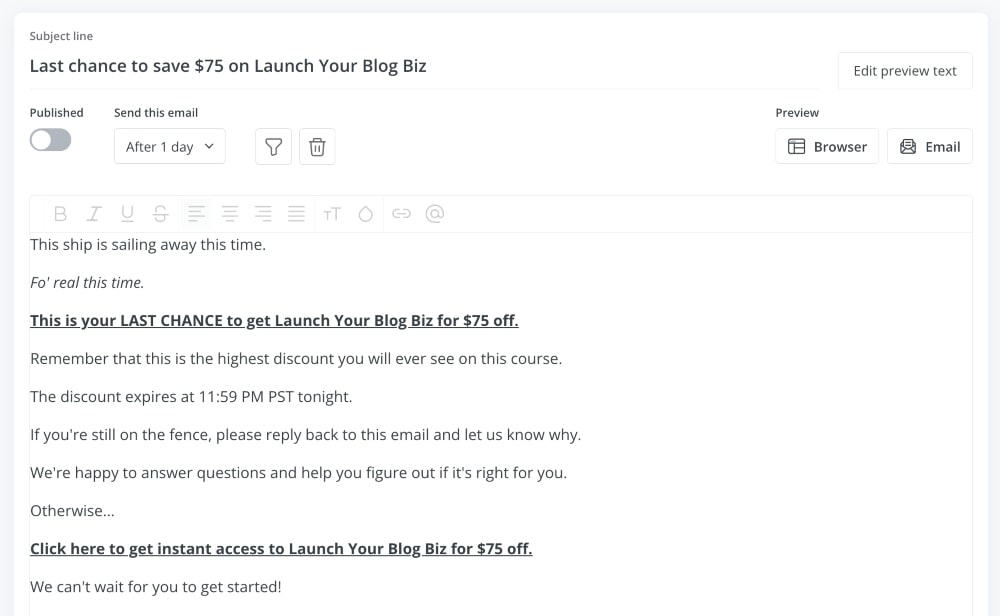
Spending time to build an email list and get new subscribers is important to focus on even for a very new blog.
This usually involves creating a free offer (checklist, guide, etc.) to give to your readers in exchange for their email address.
Like this one:
Most bloggers use email marketing in two ways:
- Promote new content: You write emails to tell your audience about new content that you’ve created.
- Promote sales and other offers: You can send emails to advertise certain products or special offers that can make you sales.
Our favorite email marketing tool for our business and what most other successful bloggers use is Kit.
Other Blogging Tasks Related to Email Marketing
- Creating lead magnets and opt-ins
- Replying back to emails
- Creating sales campaigns
- Monitoring open rates, click rates, and other performance metrics
4. Affiliate Marketing
One of the most common ways that bloggers earn money from their blogs and content is by promoting affiliate content.
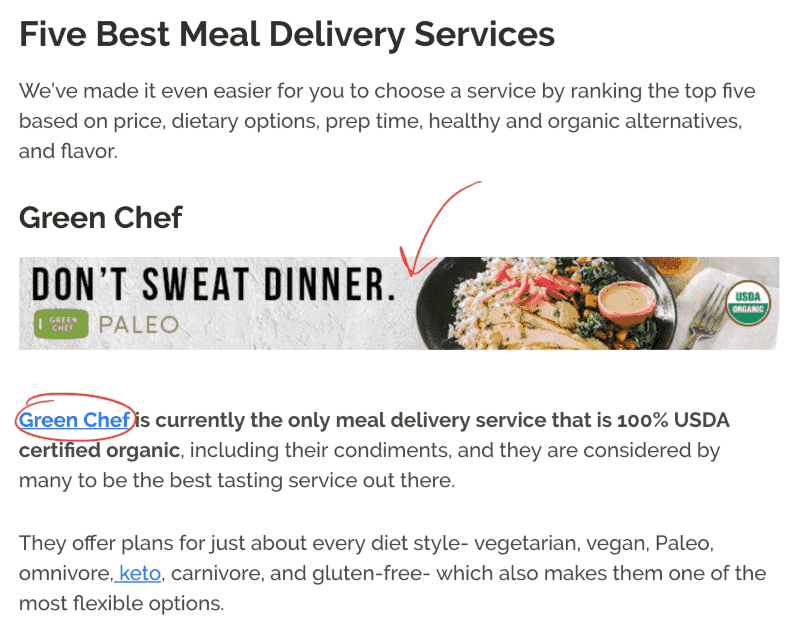
Affiliate marketing involves promoting other people’s products or services and earning a commission when someone buys after clicking your link or promo code.
It’s one of the best ways to make money blogging because you don’t need to create any product yourself and can still earn commissions from other people’s products.
The key is to find high-quality affiliate products that are relevant to your audience and then create useful content that helps people understand more about the product and why it’s useful.
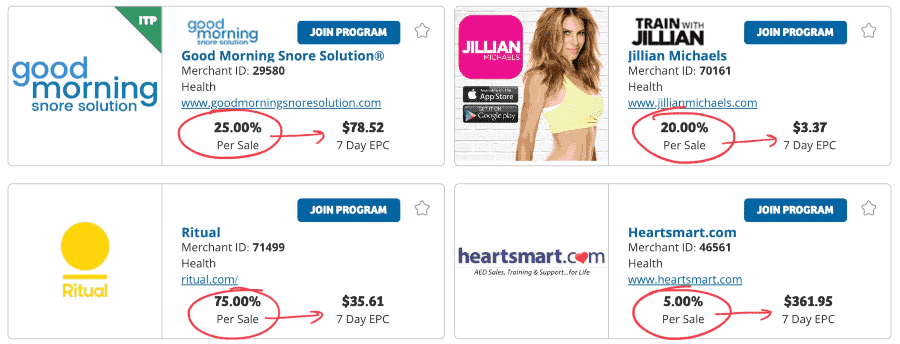
This is a very popular way for Instagrammers and influencers to make money. You can usually share affiliate links in your blog posts, videos, podcasts, online courses, and other content.
Blogging Tasks Related to Affiliate Marketing
- Applying to affiliate programs
- Adding affiliate links to your blog posts
- Creating product reviews for affiliate products and services
5. Sell Products and Services
Finally, another main job of a blogger is to make money from your blog.
There are a lot of ways that you can do this.
Some of the most common ways include affiliate marketing, putting ads on your blog, partnerships and sponsored content, and selling products and services.
These could be physical products like t-shirts, books, mugs, or even digital products like ebooks, online courses, software programs, printables, etc.
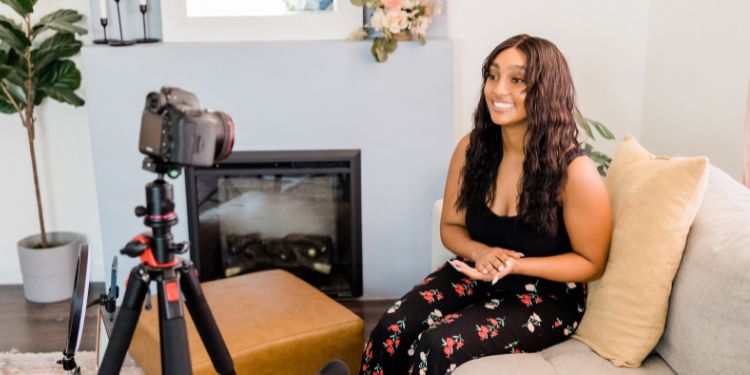
This could also include selling services like coaching or consulting. It’s a great way to monetize your blog because it gives you more control over what products you create and how much money you make from them.
We prefer to focus on selling digital products and more specifically, online courses. We sell our signature course on Kajabi.
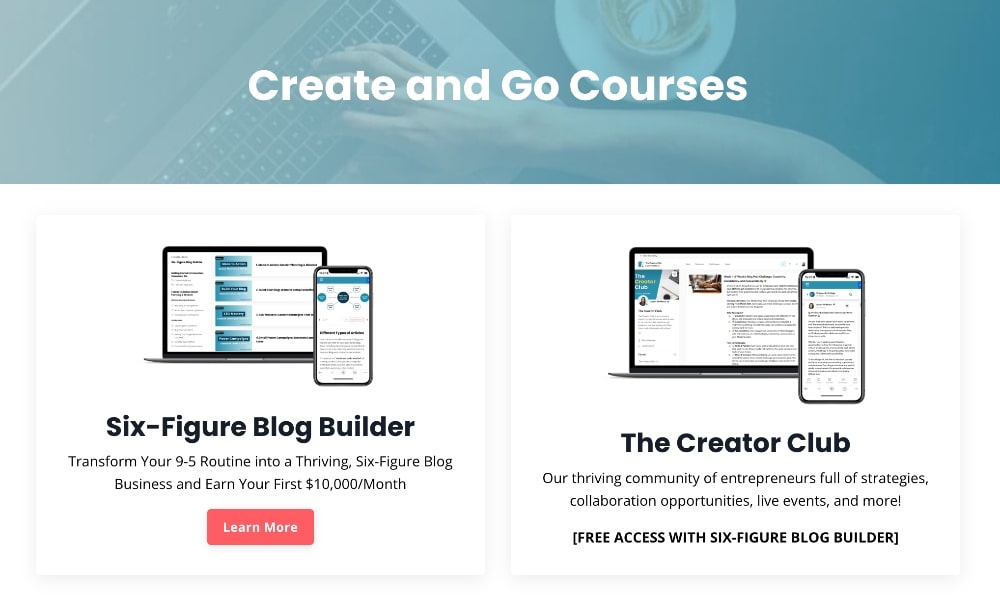
A lot of bloggers sell courses because it provides them a way to take a deeper dive into their blog topics and strategies and charge a premium price for it.
Courses can also be a relatively passive form of blogging income depending on if they need to be regularly updated.
Blogging Tasks Related to Making Money
At this stage, bloggers are doing a number of different tasks depending on what they are selling, including:
- Creating course content
- Writing an eBook
- Setting up an eCommerce shop
- Building sales pages
- Writing email sales copy
Other Blogger Responsibilities
As a blogger, your tasks will vary from day to day and year to year, but they will generally revolve around the 5 top-level tasks discussed above.
Here are some of the other most common types of tasks a blogger does on a regular basis:
Blog Setup and Web Design
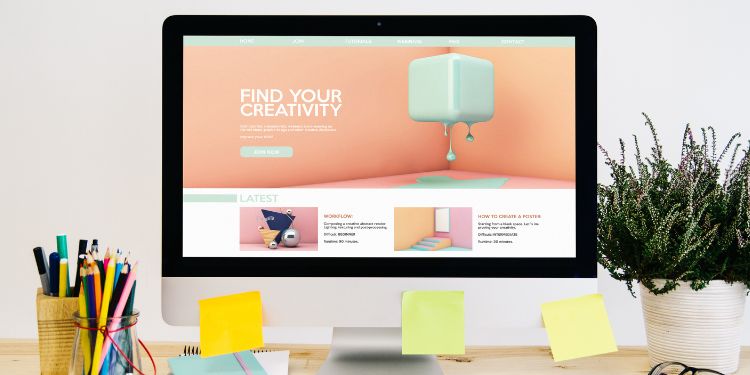
- Setting up your blog with a hosting company
- Designing your blog with a good WordPress theme
- Managing your WordPress website
- Updating your website regularly
Research and Learning
- Taking courses, reading articles, watching YouTube videos, and listening to podcasts to learn new strategies and knowledge
- Staying up to date on current events and the latest trends in your niche
- Keeping an eye on your competitors and their strategies
Sales and Marketing
- Writing sales-focused content to sell your products
- Writing email campaigns to launch products and make sales
- Designing high-converting sales pages
Partnerships and Networking
- Networking with other bloggers in your blogging community
- Forming partnerships with other bloggers and brands
- Negotiating work and payment for sponsored posts
- Working with other bloggers to write guest posts
Customer Service
- Responding to comments on your blog and other social media platforms
- Communicating with customers who purchase your products
- Providing additional help and support for your products
Performance and Analytics
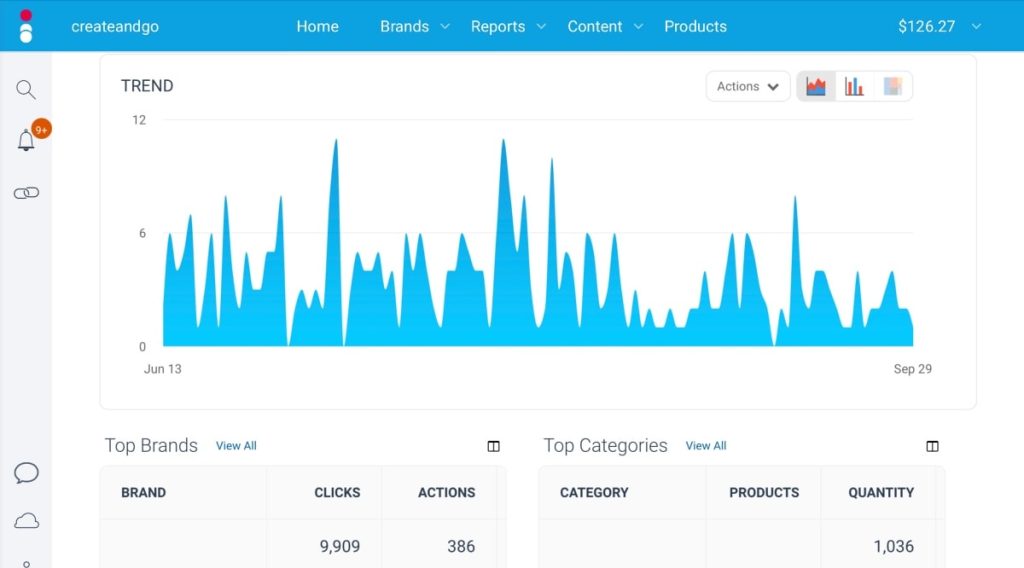
- Tracking website visitors, sales, and other analytics
- Testing out new software and customizations for your blog
- Understanding basic website speed, security, and performance
Accounting and Finance
- Keeping track of your blog revenues and spending
- Reporting your blog profits on your tax return
- Evaluating the profitability of using new software tools
Outsourcing and Building a Team
- Outsourcing certain tasks when the time comes so that you can grow your blog
- Learning how to build and manage a team
- Using software tools for project management and communication
The above tasks are ones that you will likely encounter at some point in your blogging business, but the good news is that many of these tasks can be outsourced.
In addition to hiring writers, bloggers often add a virtual assistant or two to their team to help out with customer service, social media management, finances, and more.
Many of the tasks required in the blogging industry can be easily outsourced to companies like Fiverr, but it’s a good idea to learn the ropes yourself first before hiring anyone to take over these tasks.
How Many Hours in a Day Do Bloggers Work?

The amount of time that bloggers spend working on their blogs will vary depending on the type of blog and the particular blogger’s goals and strategies.
Some bloggers can get with just a few hours per week while many others may be putting in more than 40 hours each week.
If you’re blogging as a side hustle, then you may only need to dedicate a few hours per week to your blog. This is also true if you’re just running a personal blog and you don’t care as much about making money.
On the other hand, if you are serious about making money from your blog and growing it into a full-time career, then it’s likely that you will be spending several hours each day on your blog tasks.
If you want it to earn you a full-time income, you will have to put in full-time hours to get there. That being said, it’s also important to work smarter – not harder.
You should focus your time on the most important tasks that will help your blog continue to grow and earn money. Earning more means that you can hire help, which frees up your time to focus on more important, high-level tasks.
With the right strategy, you can make sure that every minute of your work is doing something to benefit your blog.
FAQs: What Does a Blogger Do?
How to Become a Successful Blogger

As you now know, there is a lot of work to be done as a blogger, but it’s also a very fun and exciting job.
As a blogger, you get to wake up every day and decide what you want to do to grow your own blog and online business.
For me, it has been the most rewarding experience and career shift I have ever made.
The good news is, all you really need is a website, a good internet connection, and a computer to start your own blogging business!
Decide What to Blog About
The first step is to figure out what to blog about. You will want to select a profitable blog niche based on what you are passionate about or a topic that you are very interested in.
There are tons of successful blogs in various niches, so stick with something that you know and are comfortable talking about.
Here are some popular blog examples for inspiration:
You don’t have to be 100% stuck on an idea before you get started because your blog can be open to change and grow over time (and should be).
You can also use our blog name generator to get some ideas for blog names.
Start Your Own Successful Blog
The next step is to start your blog with the right blogging platform and hosting company.
You can get a detailed, step-by-step guide on how to do this in our free tutorial on how to create a blog.
We hope you enjoyed this article and that it shed some light on what bloggers do. If you have any questions at all, please don’t hesitate to leave a comment below! We’d love to hear from you!
Thanks
You’re welcome 🙂
i really loved this thank u so much for this i think it time to start mine. God help me. please where can i get more lessons or contact you if i need any help
Have you signed up for our FREE Bootcamp linked at the top of our homepage? That is a great place to start!
Hi.
I’m praise, and I’d love to start this blogging thing too, cause I’ve got so many stuffs on me, I need to go through school takecare of my siblings and help my mom out with some things if I could I’m just 22 though, your post is amazing and I’ve gained so many knowledge on how to go about it, but I’m still partially confused, please is it possible for me to use an Android phone? I don’t have a laptop, I’ve really got no one, please help me know how to go about it, thank you so much. God bless you!
Hey Praise, we do not recommend blogging from your phone. Do you have a local library available to you where you can use a laptop for free until you can invest in a laptop? You don’t need an expensive laptop. You just need one that works and is connected to the internet. 😉
It was awesome 😍
Thank you!
Wow, thanks guys. It is amazing reading through this guide. Very helpful indeed. Blessings
wow, amazing this blog was really helpful.
Thank you very much
Glad you enjoyed it!
Thank you for your selfless Interest,to bring up novices as me. Please,how possibly could one follow-up your training and terms; with very little knowledge of ICT ? Even the website stuff is another clause right now. I am proud of all the females , whose articles/ blogs I usually enjoy reading..👍
Hey Fidelia, have you signed up for our FREE Email Series linked on the home page?
Fascinating
Indeed 😉